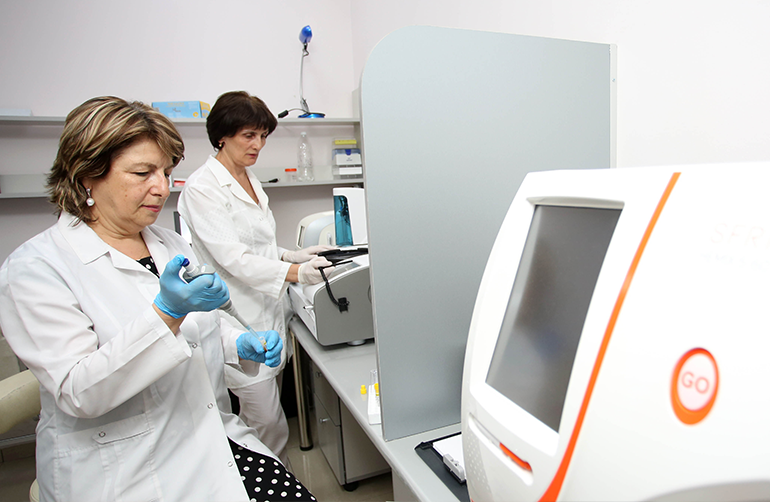
The Hemostasis Laboratory has been in function at the Center for Hemophilia and Thrombosis since 2002, and at the National Center of Surgery - since 2015.
World Federation of Hemophilia took the initiative and provided financial support for the establishment of the laboratory. Laboratory professionals were taught and mastered modern research procedures under the aegis of the World Federation program at Minneapolis University Clinic, Mayo Clinic, and Royal Hospital in London.
The laboratory obtained contemporary world-class equipment with the assistance of the World Federation of Hemophilia. The laboratory has been approved by the Sheffield Quality Control Center in the United Kingdom since 2002.
This laboratory is Georgia's only one that does in-depth research on hereditary and acquired hemostasis.
Coagulation plasma factors (YIII, IX, XI, XII, YII), Von Willebrand factor study, qualitative assessment of APTT and PT dependent inhibitor, and detection of inhibitor titer by Bethesda technique are only performed in this laboratory. The laboratory also examines platelet function in response to several agonists (ristocetin, ADF, collagen, and epinephrine), which aids in the differential diagnosis of thrombocytopathy.
Hematologists can now accurately diagnose and treat hemostasis diseases because of these investigations.
The Hemophilia Center has 380 patients registered. Patients with acquired (secondary) hemostasis diseases are referred to the laboratory in addition to patients registered at the Hemophilia and Thrombosis Center, the majority of whom have a hereditary form of hemostasis. Their symptoms are typically severe and require immediate diagnosis and treatment.
The laboratory currently received a high-level analyzer as a gift from the Hemophilia Center in Frankfurt as part of the World Federation of Hemophilia’s joint screening program, which will allow it to further expand and refine the variety of tests offered at the laboratory.




